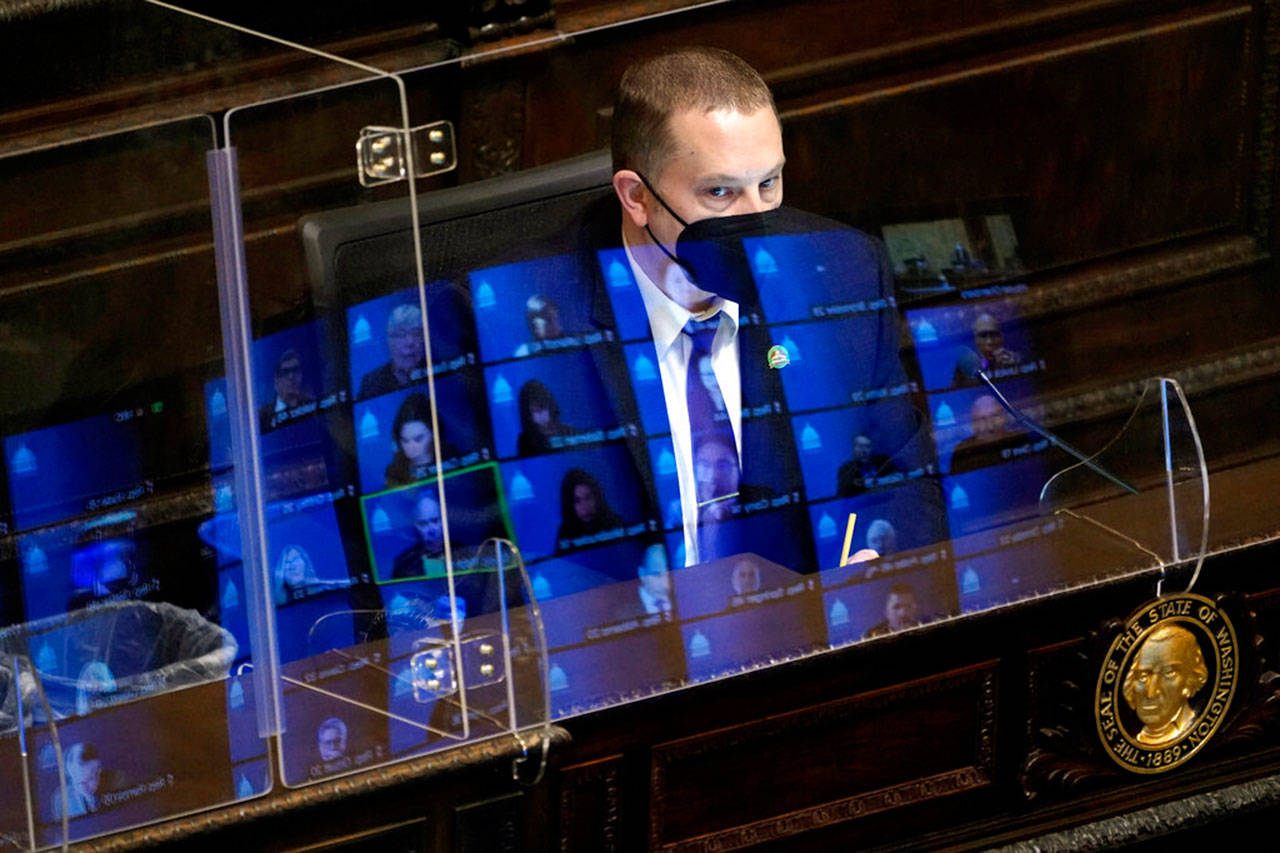By The Herald Editorial Board
Apollo 11 astronaut Michael Collins, whose death from cancer was announced Thursday at the age of 90, was often considered the “forgotten astronaut.”
The moniker was less than accurate. When Collins and his fellow crew members — Buzz Aldrin and Neil Armstrong — returned to earth after the successful and history-making mission in July 1969, all three were celebrated in the months and years that followed. The three were seated together on the back of a convertible limo for a ticker-tape parade in New York City — side by side by side — as they had been in the command module, Columbia.
Yet it was Armstrong and Aldrin who were able to stretch their legs on the surface of the moon, Armstrong famously the first to walk there and speak of “one small step” and “one giant leap.”
But during their lunar explorations, Collins’ duty was to remain in the orbiting Columbia, waiting for the return of both moon walkers in the lunar module. While Armstrong and Aldrin enjoyed a measure of fame greater than that of Collins, it was Collins’ piloting of the module that assured the success of the mission and that all three would live to enjoy that fame.
It’s the nature of teams and teamwork that the notice for success is rarely equally shared. The quarterback more celebrated than the tackle; the chief executive better paid — often much better — than the line worker. And a legislative body’s minority party seen as accomplishing less — or winning fewer policy and budget battles — than the party in power.
Republicans during the state Legislature’s recently completed session might have identified with Collins, orbiting in the Columbia while Democrats planted the flag on the moon.
This year’s session was — regardless of whether one favors or opposes particular outcomes — unarguably one of the most consequential in recent years, adopting far-reaching legislation on law enforcement and criminal justice reforms, a record-setting $59 billion, 1,100-page budget, a capital gains tax and environmental standards that will put a price on carbon emissions and require carbon’s reduction from the tailpipes of the vehicles we drive.
“An awful lot of legislation was passed,” agreed Rep. J.T. Wilcox, R-Yelm, House minority leader, during a recent online conversation. And little of it to the liking of his party.
But the participation of Republicans, even as it was largely by remote connections throughout the session, kept those decisions from being “knee-jerk” or going unchallenged, he said. It assured that the interests of constituents in the districts represented by Republicans were heard. And Republicans were there to back up the positions of moderate Democrats, Wilcox said, forcing negotiations and compromises up until the final hours of the session.
Much of the major pieces of legislation were passed over the objections of Republicans, said Sen. John Braun, R-Centralia, the Senate minority leader. Their opposition remains especially on the adoption of the capital gains tax and its constitutionality and in the cost to consumers — especially in rural areas — of the low-carbon fuel standard and the carbon cap-and-trade bill, he said. Nor could Republicans convince Democrats to address what they saw as a need to limit the authority of the governor’s office to call the shots on pandemic response without the consent of lawmakers.
But there was legislation that passed with Republican support and their participation in its crafting, Braun said, including funding for the working families tax credit, a reduction in the unfunded liability of pensions for public school teachers and $130 million for wildfire response and forest health, which Braun said will do more — by reducing the number and intensity of wildfires — to immediately limit carbon emissions than the two other carbon-emission bills.
The session work by Washington Republicans also stands in contrast to that of the GOP in Oregon’s Legislature. When Oregon lawmakers, whose session continues until late June, weren’t having to cancel in-person floor action because of coronavirus outbreaks, Oregon’s House Republicans frequently just walked out, leaving the body without a quorum and unable to act on legislation that the Republican lawmakers opposed.
There are circumstances that differ between the two neighbors’ legislatures. Oregon’s Democrats hold super-majorities in both chambers in Salem, further limiting the influence of the minority. Democratic majorities are slimmer in Olympia; 16 votes in the House and seven in the Senate, making negotiations and compromise necessary.
Still, said Wilcox, the thought of not showing up to work is foreign to him.
“I’ve been punching a clock since I was 5,” Wilcox said, referring to working on his family’s farm when he was a child. “I’ve never walked off a job.”
“We feel like we need to show up and have that policy fight and do it in a decorous, thoughtful and civil way,” Braun said. “We have to show up and make the argument.”
There’s no ticker-tape parade for state lawmakers, Democrats or Republicans; they are, after all, paid for what they do. But the commitment of state legislators — especially during this year’s full 105-day session of energy-sapping Zoom teleconferences and other covid protocols — merits appreciation and recognition, especially for the Republicans who brought Columbia home.
Talk to us
> Give us your news tips.
> Send us a letter to the editor.
> More Herald contact information.

























